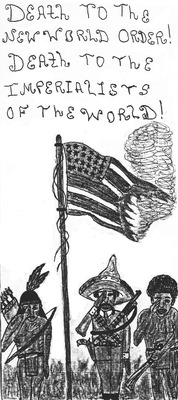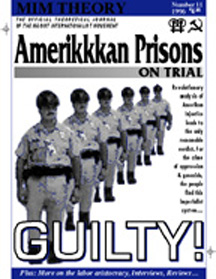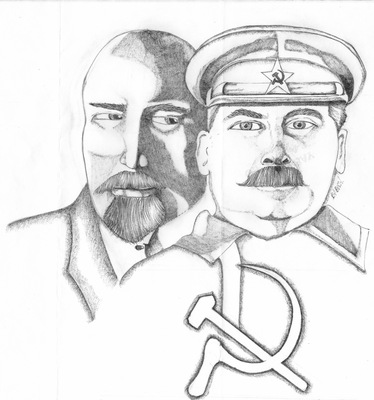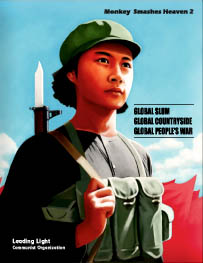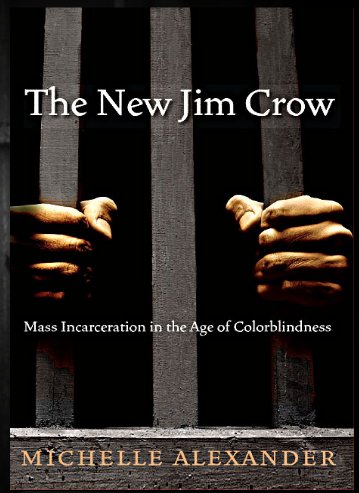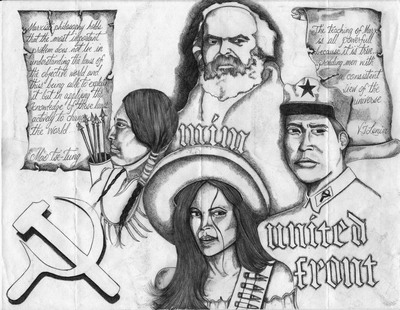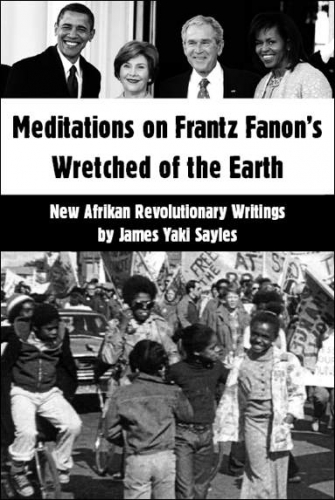
A Critique of Rashid's Black Liberation in the 21st Century
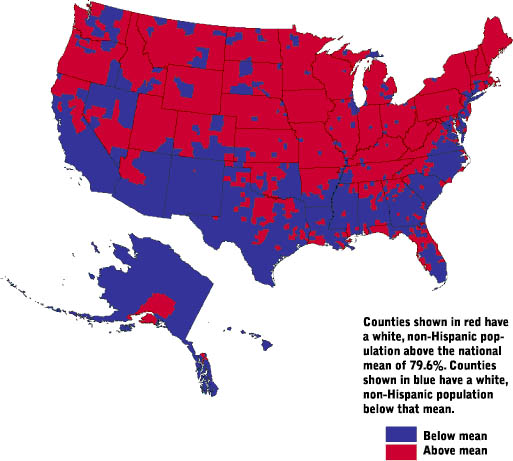
This is a response to an article titled “Black Liberation in the 21st Century: A Revolutionary Reassessment of Black Nationalism,” by the New Afrikan Black Panther Party - Prison Chapter’s Minister of Defense, Rashid. Rashid’s article has been published in a number of places.
My writing will not analyze Black Nationalism per se, rather it aims to address the “national question” itself. My position comes from a Chicano perspective, which I hope adds to the theoretical sauce surrounding the idea of national liberation and the development of the oppressed nations ideologically, whether they be from the Brown, Black or Red Nations here in the United $tates. In the contemporary prisoner, one sees an awakening to truth and meaning amidst a state offensive to deprive millions of humyn dignity and freedom. The roundups, ICE raids and fascist laws (reinforced with putting the data of millions of oppressed across the U.$. into the state intelligence files preparing for future revolt and repression) has added to the swirl of these times for people to become politicized, and prisoners are no exception.
The struggle in the ideological arena is just as vital as that with the rifle, and perhaps more difficult. Out in society – where people have more social influences – ideas, experiences and thought can bring more diverse views into the sphere of theory. Often times the prison environment, in its concentrated form and social makeup, has more limited ideological influences. This is a trap that prisoners should guard against in developing a political line. There will always be ideological “yes people” in prisons, especially amongst one’s own circle of friends or comrades. This could also be said of the limited contacts in the outside world that most prisoners have.
The “national question” is one that is not exclusive to the Black Nation; it is something that Raza and others are wrangling with as well. My critiques here are related to the national question in the United $tates in general, and not specific to the Black Belt Thesis (BBT) that Rashid addresses in his article.
In the section titled “The Black Belt Thesis and the New Class
Configuration of the New Afrikan Nation,” Rashid describes comrade J.V.
Stalin on the national question as follows:
The [Black Belt Thesis] was based on comrade J.V. Stalin’s analysis of the national question as essentially a peasant question. Unlike the analysis put forward by Lenin, and more fully developed by Mao, Stalin’s analysis limited the national question to essentially a peasantry’s struggle for the land they labored on geographically defined by their having a common language, history, culture and economic life together. Hence the slogan “Free the Land!” and “Land to the Tiller!”
Just to be clear, J.V. Stalin defined a “nation” as follows:
A nation is a historically constituted, stable community of people, formed on the basis of language, territory, economic life, and psychological make-up manifested in a common culture.”(1)
This definition continues to stand as what defines a nation today and to deny this is simply a deviation. Comrade Lenin was not alive to see the development of the anti-colonial struggles and thus in his view oppressed nations could not be victorious on their own accord, but Stalin taught us differently. At the same time Stalin also stated that should a people no longer meet any of these criteria of a nation then they are no longer a nation.
In this section, Rashid refers to a “Great Migration” of Blacks out of the rural south and across the United $tates, which he uses, or seems to use, as justification for not having “need of pursuing a struggle to achieve a New Afrikan nation state, we have achieved the historical results of bourgeois democracy…” Just because a people migrate across the continent does not negate a national territory so long as a large concentration remains in the national territory. For example, if the Mohawk nation continues to reside in the northeast but a significant portion of their population spread out “across America” and become urban dwellers, their nation remains in the Northeast no matter how much they wish to be Oregonians or Alaskans. But what really seemed grating in this section was the last paragraph, which reads:
To complete the liberal democratic revolution and move forward to socialist reconstruction the proletariat must lead the struggle which is stifled by the increasingly anti-democratic, fascistic and reactionary bourgeoisie. The bourgeois are no longer capable of playing a progressive role in history.
First, the proletariat in its original sense for the most part does not exist in the United $tates. In addition, the Trotskyite approach of relying on the Amerikan “working class” is a waste of time. Amerikan workers are not a revolutionary vehicle - they are not exploited when they are amongst the highest paid workers in the world. How can those seeking higher pay for more or bigger plasma TVs and SUVs be relied upon to give all that up for “socialist construction”? And my view does not come unsupported by the ideological framework that Rashid claims to represent. Engels wrote to Marx in 1858:
The English proletariat is actually becoming more and more bourgeois, so that this most bourgeois of all nations is apparently aiming ultimately at the possession of a bourgeois aristocracy and a bourgeois proletariat alongside the bourgeoisie. For a nation which exploits the whole world this is of course to a certain extent justifiable.(2)
So even back in Marx and Engels’s day the English proletariat was already bourgeoisified. Imperialism has developed far more since 1858, further concentrating the wealth disparity between the oppressor and oppressed nations globally.
In the section titled “The Revolutionary Advantages of Our Proletarian National Character,” the idea is put forth of “building a multi-ethnic, multi-racial socialist America.” Although I am not opposed to multi-ethnic organizing, I also don’t negate the usefulness of single-nation parties. One has to analyze the concrete conditions in the United $tates. The historical development of the social forces may not agree with this approach, and just because it may have worked in some countries it may not apply to this country. It obviously didn’t apply to South Africa, another settler state. In Azania the Pan Africanist Congress seemed to forward the struggle more than other groups, in particular the integrationist African National Congress that took power and changed little for Azanians. Huey Newton himself understood this, thus the Black Panther Party was a single nationality party, with internationalist politics. Of course, at some point things will change, but the advancement of imperialism and a long lineage of white supremacy and privilege remains a hurdle still too huge for real multi-ethnic organizing advancements at this time in the United $tates.
In the section “Separation, Integration or Revolution,” what is put forward for liberation is to overthrow “imperialism and play a leading role in the global proletarian revolution and socialist reconstruction.” This, Rashid states, is “our path to liberation.” This smacks of First World chauvinism. The International Communist Movement (ICM) will always be led by the Third World proletariat. The ICM is dominated by the Third World and our voice in the First World is just that, a voice, that will help advance the global struggle, not lead. The idea of First World leadership of the ICM is classic Trotskyism.
In the section “Reassessing the National Liberation Question,” in speaking of past national liberation struggles, Rashid points to them having an “unattainable” goal. Yet countries like Vietnam, northern Korea, as well as Cuba come to mind as being successful in their national liberation struggles. [China is the prime example of liberating itself from imperialism and capitalism through socialist revolution. Of course, Huey Newton himself eventually dismissed China’s achieving of true national liberation in his theory of “intercommunalism” that the NABPP-PC upholds - Editor]
Rashid goes on to say, “Even if we did manage to reconstitute ourselves as a territorial nation in the”Black Belt,” we would only join the ranks of imperialist dominated Third World nations – and with the imperialist U.S. right on our border.” Here it seems the idealist proposition is being put forward that an oppressed nation could possibly liberate itself to the point of secession while U.$. imperialism is still breathing. So long as U.$. imperialism is still in power, no internal oppressed nation will emancipate itself. So the thought of the imperialists being on one’s border will not be a problem as at that point in the struggle for national liberation imperialism will be on no one’s border.
In this same section, Rashid quotes Amilcar Cabral, who posed the question of whether national liberation was an imperialist creation in many African countries. Now we should understand that the imperialists will use any country, ideology or leader if allowed (Ghadaffi found this out the hard way most recently) but we should not believe that the people are not smart enough to free themselves when oppressed. The white supremacists put forward a line that Jews are in an international conspiracy creating revolution and communism. These conspiracy theorists look for any reason to suggest that the people cannot come to the conclusion to decolonize themselves.
Later in this section the question is asked if the “proponents of the BBT expect whites in the ‘Black Belt’ to passively concede the territory and leave?”
I’m not a proponent of the Black Belt Thesis, but speaking in regard to national liberation I can answer this question quite clearly. As this writer alludes to, there may be a “white backlash.” But in any national liberation struggle anywhere on the planet there is always a backlash from those whose interests are threatened. When the oppressed nations decide to liberate themselves in the United $tates the objective position of the reactionaries will be to fight to uphold their white privilege. This privilege relies heavily on the state and the culture of white supremacy in Amerika. So their choice will be to support the national liberation struggles, as real white revolutionaries will do, or to side with imperialism. But there will be no sympathy for oppressors in any national liberation struggle.
Asking the question of what do we expect whites to do is akin to asking the revolutionary post-Civil War, when many were cut off from parasitism, “well do you expect the people to stop exploiting ‘their’ field workers?” Do you expect Amerikan workers to stop being paid high wages gained through the exploitation of the Third World? Do you expect the pimp to stop pimping the prostitute? Do you expect the oppressor nation to give up their national privilege? To all of the above I say if it’s what the people decide, then YES!
Real white comrades not only will support the oppressed to obtain liberation in a future revolution, but most do so in their work today, even though they are a small minority compared to the larger Amerikan population. By that time in the distant future hopefully more people will have been educated and converted.
It is the task of conscious prisoners to develop a political line that propels the imprisoned masses forward via concrete analysis, not just of prison conditions, but of conditions outside these concentration camps as well. Oppression in imperialism is a three-legged stool that includes class, nation and gender. Thus we must develop our political line according to these concrete conditions. Our line should be grounded in reality. Our society is still very much segregated along class and national lines, particularly in the fields of housing, education and freedom.
Indeed, over half the people living within two miles of a hazardous waste facility are Brown, Black or First Nations.(3) In many high schools in the inner city Brown and Black youth are forced to share one textbook for 3 or 4 students, while their parents are jailed when they attempt to enroll their children in “better off” schools which unsurprisingly are predominantly white.(4) The prisons are no different, nor the “justice system.” Of the 700,000 who were reported to have been stopped and frisked in New York City last year, 87% were Latinos and Blacks even though whites make up 44% of New York City’s population.
When we develop a political line we must challenge it on a materialist foundation in order to sharpen things up in a positive way, but it must not be detached from reality. Only in this way will we identify what is palpable in the realm of national liberation.
As Lenin said, “it is fine, it is necessary and important, to dream of another or radically different and better world – while at the same time we must infuse and inform our dreams with the most consistent, systematic and comprehensive scientific outlook and method, communism, and on that basis fight to bring those dreams into reality.”
MIM(Prisons) adds: The original article by Rashid is in response to the New Afrikan Maoist Party and cites the Maoist Internationalist Movement as another party promoting the Black Belt Thesis. While MIM certainly never denounced the Black Belt Thesis, they recognized the crumbling material basis for seeing it through in the post-Comintern years that Rashid points to in his article. It is worth noting that more recent statistics show the New Afrikan population since 1990 has increased most in the South, where 55% of New Afrikans live today and that in the Black Belt states a much higher percentage of the population is New Afrikan than in the rest of the country.(5) MIM did publish an interesting discussion of the land question for New Afrika as an example of a two line struggle in 2004. Ultimately the land question must be determined by two conditions which we do not currently have: 1) a Black nation that has liberated itself from imperialism, and 2) a forum for negotiating land division in North America with other internal semi-colonies free from imperialist intervention.
In his article, Rashid responds to our critique of his liquidating the nationalist struggle in the book Defying the Tomb. In doing so he speaks of a Pan-Afrikan Nation, which is an oxymoron completely liquidating the meaning of both terms. Pan-Afrikanism is a recognition of the common interests of the various oppressed nations of Africa, often extended to the African diaspora. You cannot apply the Stalin quote given above to New Afrika and Pan Afrikanism and consistently call both a nation.
But ultimately, as the USW comrade criticizes above, the liquidationism is strongest in the NABPP-PC line on the progressive nature of the Amerikan nation. It is this dividing line that makes it impossible for our camps to see eye-to-eye and carry out a real two line struggle on the question of New Afrikan land.
Related Articles:This article referenced in:








